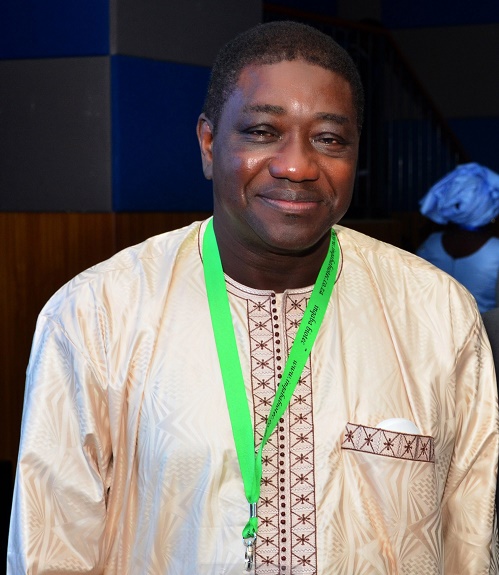By Prof Souleymane Mboup, Director for the Institute for Health Research, Epidemiological Surveillance and Training (IRESSEF) (Institut de Recherche en Santé, de Surveillance Epidémiologique et de Formations) in Senegal.
Africa’s weakening health systems are in jeopardy. Given the number of recent disease outbreaks like Ebola and Listeriosis, there is a dire need for review and action to strengthen our health systems and ensure that public health threats are rapidly identified and contained. This is an urgent necessity and that should be prioritized by all African nations. After all, nothing is more important than our health.
The 2014 African Regional Report of the World Health Organisation (WHO) found that Africa confronts the world’s most dramatic public health crisis. It is the second most populated continent which continues to grow rapidly and is currently occupied by 1.2 billion people. It is predicted to host 4 billion by the end of the century, which is more than one third of humanity.
Poor infrastructure combined with shortages of medicine and equipment should be a thing of the past in modern day Africa, yet it continues to plague us. How do we address this problem and help improve our existing health system?
A lack of investment seems to be a major concern and the time has now come for collective action to contain these global health hazards. This should not only be a priority for Africa, but the entire world. If we hope to avoid another outbreak like Ebola, we need to invest in our health systems.
According to Volume 2 of the Official Journal of the Society to improve Diagnosis in Medicine (SIDM), in addition to Africa’s medicine shortages and human resources, many staff are often not well-trained.
“The majority of African health workers have mid-level qualifications and only 9.7% have a degree as a medical doctor…The phenomena generally described for health systems affect clinical laboratories too,” it stated.
“Laboratory medicine should play a critical role in effective and efficient management of healthcare, but this is often not the case in Africa. Laboratory expenditure is frequently prohibitive for most African health systems, which are adversely affected by issues such as lack of resources or corruption.”
The journal further states that in many places in the continent procedures are not always carried out accurately due to the inadequacy of infrastructure like power and water supply networks.
Several authors, meanwhile, found that the harmonization of laboratory activities is a critical step in developing health systems.
To combat the rise of new global health threats, early detection and response is crucial. Laboratories play a critical role in disease control and preventative measures as they provide the ability to rapidly detect, characterize and report public health threats, in addition to optimally guiding patient care.
Significant progress has been made in improving laboratory networks since the adoption of the 2008 Maputo Declaration for Strengthening Laboratory Systems and Resolution at the 58th session of the World Health Organization Regional Committee for Africa (WHO AFRO). This resulted in a scale-up of diagnostic services for HIV, tuberculosis, and malaria. However, emerging threats now require more integrated laboratory networks that are aligned with public health institutes for effective responses and observation.
In this regard, the African Society for Laboratory Services (ASLM) together with WHO AFRO, and high-level Health Ministry officials from more than 20 African countries have issued a “Freetown Declaration”. It calls for international and local stakeholders to bolster capacity to establish resilient tiered laboratory networks, regularly measure progress with a standardised score card, and effectively integrate these networks into disease surveillance and public health institutes.
In this regard, the African Society for Laboratory Medicine (ASLM) will be hosting its fourth biennial international conference in Abuja, Nigeria in December which centres around the theme: “Preventing and Controlling the Next Pandemic: The Role of the Laboratory”. The conference could not have come at a better time as South Africa battles a Listeriosis outbreak, while its neighbour Nigeria continues the fight against Polio and other diseases.
ASLM2018 will serve as a platform for the international laboratory medicinal community to share best practices, acquire knowledge and debate innovative approaches to combat global health threats. It will also provide information on the needs in Africa, help shape collaborations between laboratories and clinicians, and contribute to strengthen Africa’s health systems and laboratory networks. The conference will escalate awareness of investment opportunities in laboratory medicine and promote the creation of public-private partnerships to ensure further development of both African laboratories and African diagnostics companies.
Africa’s health systems are in jeopardy. The faster we realise this, the quicker we can act and move forward. The continent requires a strategy and skilled individuals who will help fill the gaps and contribute to harmonizing and strengthening the existing health laboratory systems in Africa.
This is a priority because nothing is more important than our health.
# Established in 2011, the African Society for Laboratory Medicine is a pan-African professional body endorsed by the African Union with support from the World Health Organization, the African Union, the United States (US) Centers for Disease Control and Prevention, the US President’s Emergency Plan for AIDS Relief, the World Bank, the Clinton Foundation, UNAIDS, and others. ASLM is focused on improving healthcare by strengthening all aspects of laboratories including workforce strengthening, quality improvement and accreditation, harmonization of regulations, strengthening of networks, and strengthening advocacy and communications.
# Project HOPE is a leader in global health development and emergency relief focused on increasing capacity and access to health care services for communities in need. Project HOPE is proud to support ASLM 2018.








